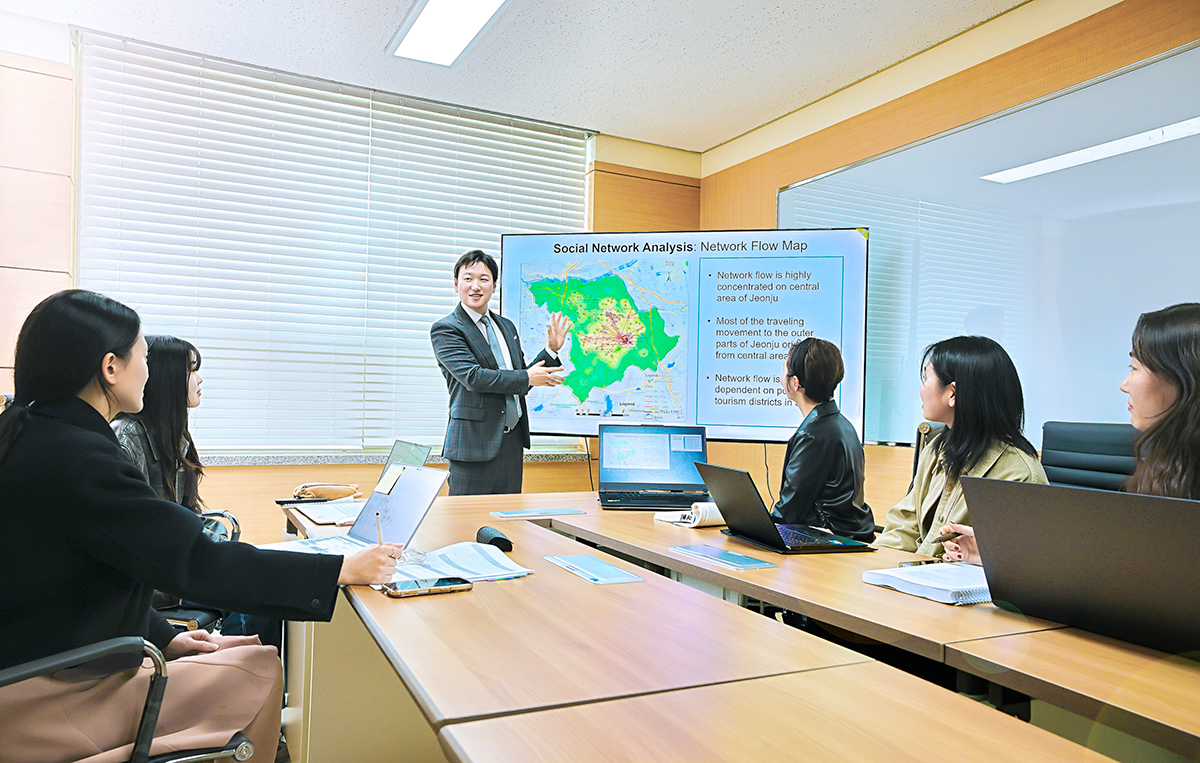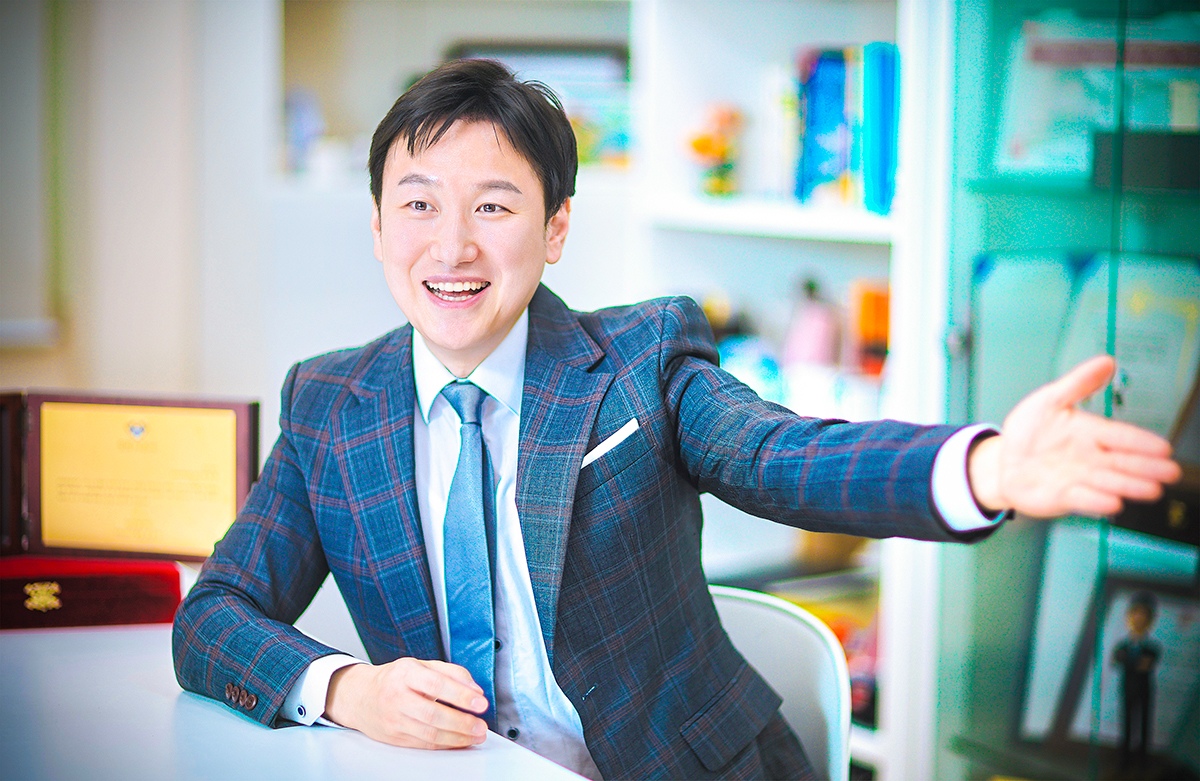header
News
Believing in the Joy of Research—and Walking the Path
- WRITER 학무부총장실

Kyung Hee Fellow (4): Professor Sangwon Park, College of Hotel & Tourism Management
How Big Data Is Shaping the Future of Tourism
Research begins with curiosity—and leads to social impact
Each year, Kyung Hee selects faculty members who have demonstrated excellence in teaching and research as Kyung Hee Fellows. In 2024, the research fellows came from a wide range of disciplines, each recognized for innovative scholarly contributions. Among them is Professor Sangwon Park of the College of Hotel & Tourism Management, who was honored for his pioneering work in tourism big data and its real-world applications. We spoke with Professor Park to learn more about his research and vision for the future.
Professor Park is a specialist in tourism behavior. He tracks tourist mobility patterns and applies big data analytics to drive meaningful changes in the tourism industry. He also transforms tourist preferences—such as popular destinations, travel routes, and spending behaviors—into structured data, helping identify the characteristics and dynamics of specific destinations. These insights are shared with local governments and related agencies to support more effective tourism development and planning.

“Understanding tourist behavior is the first step toward advancing the tourism industry”—this is the guiding philosophy behind Professor Park’s research. A turning point in his academic journey came in 2011, while he was teaching in the United Kingdom. At the time, big data was rapidly emerging as a major topic across both academia and industry. Through active engagement with experts in the field, Professor Park came to deeply recognize the transformative potential of big data technologies.
It was during this time that he began to seriously explore the use of big data in tourism research. At the time, most academic studies in the field were still heavily centered on hotels. However, Park took a different approach. Rather than limiting tourism to the hotel sector, he emphasized the need for a broader, more fundamental perspective.
Despite advancements in technology, much of the tourism and hospitality industry still relies on outdated methods. To address this, Professor Park advocates for the integration of AI and big data as a path toward smarter, more responsive decision-making. He argues that these tools are essential for optimizing how destinations are developed and how key decisions are made across the hotel sector and beyond. “AI and big data are powerful drivers of progress in the tourism industry,” he said. “They allowed us to make smarter and more efficient decisions.” Looking ahead, he hopes to develop new systems that harness these technologies to lead meaningful innovation across the sector.
Professor Park is also leading a number of projects aimed at promoting sustainability in the tourism industry. One of his current research initiatives focuses on integrating electric vehicle (EV) infrastructure with tourism mobility systems. He is developing an optimization model that uses real-time data from EV charging stations across the country to help tourists more easily access and utilize electric vehicles. He hopes his work will support the spread of eco-friendly transportation, particularly in destinations like Jeju Island, where sustainable travel options are in high demand

To students pursuing research, Professor Park offers honest yet encouraging advice. “Research can be difficult and, at times, lonely,” he said. “But it deeply meaningful when it helps address real-world problems. And to stay on the path, you have to genuinely enjoy it.” He emphasized the importance of asking questions and finding joy in the process of searching for answers. His own achievements reflect a sustainable passion for inquiry and innovation, including being named one of Clarivate’s Highly Cited Researchers (HCR), receiving the Ministry of Culture, Sports and Tourism Award, and earning top honors for academic work in tourism IT.
Being named as a Kyung Hee Fellow has given Professor Park fresh motivation to continue his research. “I take great pride in knowing that my love for research and consistent efforts can meaningfully contribute the University,” he said. He expressed gratitude that his passion and long-standing commitment to research were recognized through this honor. For the professor, the fellowship is not just an acknowledgement of past achievements but an encouragement to pursue even more impactful work. He aims to ensure that his academic contributions lead not only to theoretical advancements but also to tangible social value. To that end, he plans to collaborate with scholars across disciplines and expand the scope and depth of his research through interdisciplinary partnerships.